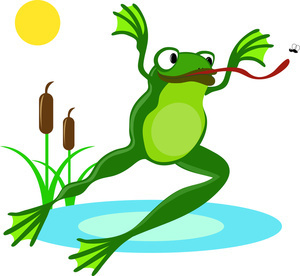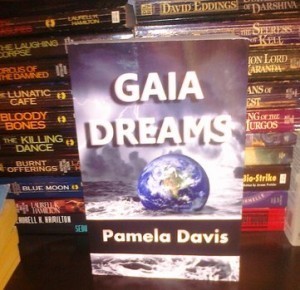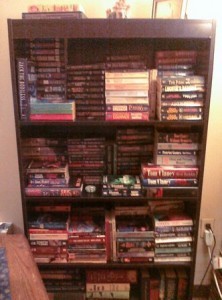Pamela Davis's Blog, page 3
November 10, 2011
power, bookstores, reviews
I wanted to mention here that losing power (and hot water) for two and a half days after the big winter storm of October was an eye-opener. For someone who has written about surviving disasters, I discovered that I was not at all prepared for one. Since then I have ordered a radio that runs on solar power or by hand crank, bought more flashlights and batteries, as well as more canned food to have on the shelves for emergencies. I really like the radio because I can charge my cell phone with it–it has a usb port.
My experiences during the power outage were fairly boring. I slept a LOT. I got to know my neighbors a bit better as we gathered in the hall where the building generator gave us minimal light there. I was thankful for my next door neighbor who fed me pumpkin muffins when I ran out of food. I kept thinking, "use this time to add to your writer's storehouse of experiences" — HA! I've decided that my creativity needs electricity to function.
We got power back and it was a time of rejoicing. I have never loved a hot shower as much as I did the one I took after the hot water came back. When the lights functioned again it was as if my brain woke up too. Suddenly I was ready to write. I come away from this whole thing knowing mainly that I am not great in disasters.
Other news:
Barnes and Noble has picked up Gaia Dreams for shelf placement in their stores. I am very excited and thankful about that, and can't wait to go see it on their shelves.
The contract has been sent back to the publisher for the second book in the series. Editing soon to come.
If anyone has read Gaia Dreams and not reviewed it yet on amazon.com or barnesandnoble.com please, please go review it as soon as possible. The more reviews it has, the better. Even if it is only a one-liner, it will be appreciated.
November 7, 2011
book two soon out there
I got the word from the publisher that the second book in the Gaiaverse will be published! I'm thrilled that it will be coming out. When I started writing it I called it a sequel, but now I have a third book so I think I have to call this book two of a series or a trilogy. I imagine I will just call it a series. A trilogy seems to have an story arc over the three books. Mine is not that way. The first book can stand on its own, but the second picks up right where it left off and continues on with the story. I love the characters even as I right book three, so who knows how much more story there is to tell?
I've been away from my blog for a while now–taking a writing break completely. It's time to get back to it, and I'll soon be editing the second book. I think the time away has been good for me, to get some distance from the story and come up with new ideas. I also know that every day I don't write makes it that much easier to avoid the next day and the next. The bottom line with writing is to put your bottom in a chair and your fingers on the keyboard and get on with it.
I decided not to do NaNoWriMo this year. I had no idea for a book to write during the month and couldn't see the point of just writing crap to put some words down on a page. Maybe next year I'll give it a try.
Next time: the snowstorm and the power outage.
October 3, 2011
partaking of the forbidden fruit
Yummy goodness.
Fruit of the forbidden tree.The fruits of our labor.
I was looking at these peaches today and it occurred to me that I've been partaking of the forbidden fruit of thinking for the past ten days. (Yes, I know the apple was the original fruit but I'm going with peaches since they were on hand.) I think that sometimes writers forget to take time to think. We start feeling the pressure to produce, to write more novels and to write them faster. In these chaotic days of self-publishing, 99-cent books, and the wild ride of ebook sales, the drive to come up with more books is overwhelming. People are out there shooting out books left and right–and some of them just aren't that good.
There is another way. The way of rationality instead of chaos. Don't get me wrong–chaos can be its own useful tool at times. But there is great benefit in letting yourself think before writing. There is a positive aspect to not writing, of taking a break even in mid-story.
For the past ten days or so I've been away from the keyboard. Why? Because I could feel myself pushing the story, forcing it. No good can come from that. When the story is on the right track, the writing flows. Yes I know that there are writers out there who talk of every sentence being a struggle, a battle. But my own experience has been of getting in the zone and having the writing flow out of me. This book has not gone that route. There have been many stops and starts. Finally I decided to walk away and just think. Really think. Let the old brain cells sit with the story and examine it. I decided to get rid of the crazy-making pressure I was feeling with my need to force the story.
Will this break have made a difference? Well, I'm starting back to work on the book very soon. I can't help but believe that letting my mind do some thinking about the story can only be a positive thing. I am hoping that the fruits of my thinking will be succulent, juicy and luscious.
September 29, 2011
when good books go bad
So many books to be read!
We've probably all had the feeling–reading along in a book, engrossed in the beginning of the story…and then it happens. We start to lose interest, we find we can no longer suspend disbelief, and we become so fed up with where the author has taken the story that we set the book aside to be left unfinished. Or perhaps we even throw it across the room for good measure.As a writer, I don't ever want this to happen with one of my books. The hope is that people will stay engaged with the story and the characters all the way to the end, and even want more after the story is on that last page. As a reader, I have had the experience of losing interest in a book, which is hard enough to concede. But there are so many books out there to be read, that it makes no sense to continue on if the book is truly boring. However, even worse is the experience of no longer believing in the story. To find yourself saying "WTF??" or "No way!" is not a good sign when reading a book. These are the ones that for me end up being thrown across the room.
My question is, what makes a good book go bad? How can a story that starts off with such promise suddenly go off the rails?
I suspect that some of these happen because the writer stops following the characters' leads and instead starts forcing them into a strict outline. It is important to listen to our characters. Even if it means having to go back and rewrite an earlier section of the book, as just happened to me, as long as we are staying true to the characters it should end up taking us down the right story path.
Sometimes I think the writer loses confidence, either settling for the easy, predictable way out of a problem in the story, or veering off wildly. This veering off into totally unexpected territory can work if it makes sense in the lives of the characters, in the truth of the story. But to grasp frantically at some extreme solution as a way to work out the loss of confidence is not so good.
Writing takes courage. You have to take a running leap of faith as you pound those words out onto the page or screen. If you let yourself believe in the story you are more than halfway there. Don't give up halfway across the abyss–keep on flying!
September 28, 2011
radio interview
You can hear my radio interview at www.theauthorsshow.com TODAY all day. It is all about my book, Gaia Dreams.
September 25, 2011
the gaiaverse
I received a lovely review of my book, Gaia Dreams, the other day from Peg Robarchek. You can see it at amazon In her review she writes,
By the end of the book, I wanted to live in the world Davis birthed and take part in the earth's new beginning.
That comment made me realize that I too want to live in that world. I think that feeling is a part of what motivated me to write the second book and to now be writing a third, all placed in what I call the Gaiaverse.
Sometimes I find it hard to see any hope in the world we all live in day to day. It seems like the future looms ahead of us shrouded in gloom and doom, and that nothing can change it. In the story told in Gaia Dreams, it took something cataclysmic to change the world. But the story ended with hope. I think hope is what my favorite disaster novels have in common with my book. Much may be destroyed, but if there is hope for a future, a new beginning, then we come away feeling refreshed and regenerated, more ready to face our own real life futures.
When I wrote the first book, I never intended to continue the story. But the Gaiaverse got to me. I could see the place in my mind, I could understand the people, their hopes and dreams, and I wanted to know what happened to them. Would they flourish in their new world? Would they learn any lessons from the past? Would they make it a true new beginning? I hope I am answering those questions in the second and third books in the Gaiaverse.
There have been books in my life that, when they ended, I just wanted to cry because that was the end of the story. I wanted more! I wanted to know what happened to all those friends I made while reading about their lives. For the first time in my life, I can make that happen. It feels…incredibly fun!
September 22, 2011
the day the frogs invaded
 I was reading Courtney's blog at courtcan.com where she has a fabulously written story from her childhood. It reminded me of those days when living outdoors was my passion and my red metal wagon was my tool of choice. Suddenly the doors to memory opened onto one of the most fascinating days of being a kid–The Day The Frogs Invaded. This could very well have been the beginning of my love of science fiction.
I was reading Courtney's blog at courtcan.com where she has a fabulously written story from her childhood. It reminded me of those days when living outdoors was my passion and my red metal wagon was my tool of choice. Suddenly the doors to memory opened onto one of the most fascinating days of being a kid–The Day The Frogs Invaded. This could very well have been the beginning of my love of science fiction.
There had been heavy rains for days, with all of the neighborhood kids cooped up in houses on the air force base in Florida. The air was warm and incredibly muggy but all we wanted as kids was to be outside. We got our wish the day the rain ended and I remember dashing outdoors onto the lawn–only to stop dead in wonder. There were frogs…everywhere! I saw my best friend from two houses down come running up. "Do you see 'em?" he yelled. "Get the wagon!"
I got the wagon and we began gathering up frogs from the carport, the sidewalk, and the yard. This was a complicated task due to the constant jumping the frogs did, right out of the wagon. There were giant bull frogs, medium-sized bright green ones and my favorite–the baby frogs. So tiny they didn't seem real, I loved the feeling of them jumping on the palm of my hand.
We had a plan for the frog collection as we piled more and more into the red wagon. We were going to release them into the woods behind our houses. It never occurred to us that the frogs had to have come from those same woods. No, we were sure they had either a) fallen from the sky or b) appeared suddenly into our neighborhood like magic. We ran out into the street to rescue frogs from being run over by the occasional passing car. Our duty was clear–we had to save the frogs.
At one point we went up to the door of my house to show my mother what a great job we were doing. After one glance into the wagon full of jumping green amphibians, she gave a scream and shouted, "Get them out of here!" Since that was our plan anyway, we figured she agreed with what we were doing. It was only later, that I heard from her all about the dangers of picking up so many frogs. Note: no warts ever appeared.
By the end of the afternoon we had an entire crew of frog rescuers involved in our project. My best friend had convinced them all to join us with their wagons, and we had a parade of wagons and sweaty children headed toward the forest, constantly stopping to re-catch the latest frog who went jumping for freedom. Finally we made it to the chainlink fence that ran behind our houses and was the border of the neighborhood. Pine trees and scrub bush held reign beyond.
So there we stood, dirty and damp, boys and girls aged 4-8 standing in a line, shoving frogs one at a time through the diamond-shaped holes in the chain link fence, watching as they jumped away, back to safety.
By the next day, there was no sign of any frog infestation. I never again saw such a frog happening in my neighborhood and I would wonder every now and then just where they had come from and why had they decided to visit my street that day. That kind of wondering was the beginning of the question all writers start with: what if?
Thanks frogs.
Image courtesy of animalclipart.net
September 13, 2011
cliff jumping
 I feel like I jumped off a cliff tonight in my writing. I found myself at a point in the story where I could take the easy route, do what seemed normal and safe–or, I could take a risk. I chose to gamble, gamble on my readers being willing to follow me down the path of difference, of the unexpected.
I feel like I jumped off a cliff tonight in my writing. I found myself at a point in the story where I could take the easy route, do what seemed normal and safe–or, I could take a risk. I chose to gamble, gamble on my readers being willing to follow me down the path of difference, of the unexpected.
I think as writers we are all in need of the unexpected. If I'm writing and I find I'm getting bored, it's usually because I've fallen into the trap of "writing safe" instead of exploring new avenues and ideas. When I am reading a book, I find that the same thing applies. Books that are predictable are just not as much fun as the ones that offer something surprising.
The thing is, it's a bit scary to stray from the expected, to venture into the unknown. For me, it requires taking a few gulps of coffee and pushing away from the keyboard to think and to get my nerve up–then I take the plunge. Once I get over that initial leap, it turns out I'm not falling at all, but am instead, flying.
September 8, 2011
circles
 Interlocking circles. A picture of life. Everything is connected, patterns within patterns, down to the tiniest element.
Interlocking circles. A picture of life. Everything is connected, patterns within patterns, down to the tiniest element.
I had a dream the other night that featured me wearing a top I wore in high school. That was a long time ago, folks, yet I recalled the exact color, shape and even texture. I could feel it against my fingers. Why, out of all the things that happen in a life, would that top be something I remembered in a dream? Patterns. Circles. The dream made me recall my life at that age, which was oh so long ago. I remembered wanting to be a writer back then. It's taken a while, but I've finally reached that youthful goal.
Every step we take in life connects us to the next one. There are so many things in life that I wish had not happened, yet without them, would I be who I am today? Would my writing be what it is today? All these connections make us who we are.
I know I'm babbling a bit tonight. I realized today that I have been letting little things hold me back in my writing. I had to come full circle today to see that, yes, I am utterly sensitive when it comes to my work and that I must get some distance from it before I can hear criticism. Eventually, I am quite able to look at the work honestly and even harshly to edit it into the best it can be–but before that point, I can be devastated by the slightest hint that something might be wrong with it. I will follow that one little hint round and round, like a mouse on a wheel, falling deeper into despair.
I shake my head now at this thought, wondering at my silliness. How could I let a few words upset my apple cart quite so much? The girl in that pale blue and white top in high school could tell you how it happened. That is where and when the lack of self-confidence was felt most keenly. And it just kept on repeating, flowing into larger circles in my life. But now, many years later, I can see the circle happening and do something about it. I can jump off the wheel before too many revolutions have gone by and make a change. Yes, there was a crisis of confidence, but it's past now, over and done with and I'm ready to write again. Yay! The drama is over! The angst is gone! Woot!
Yeah, I know, those last few exclamation points weren't actually necessary.
September 7, 2011
words in the sun
 Here's the dichotomy many writers suffer from. Self-doubt vs. Arrogance. In order to write, to put down words into sentences that will go into a poem, short story, novel–even a blog post–there has to be an element of arrogance in the writer. The belief that what he/she has to say is worth reading, must be paramount, or the words would never get put onto the page. Combined with this arrogance is the certain belief that nothing we write will ever be good enough. The struggle between this self-doubt and the arrogance necessary to write is the ongoing battle in the author's life.
Here's the dichotomy many writers suffer from. Self-doubt vs. Arrogance. In order to write, to put down words into sentences that will go into a poem, short story, novel–even a blog post–there has to be an element of arrogance in the writer. The belief that what he/she has to say is worth reading, must be paramount, or the words would never get put onto the page. Combined with this arrogance is the certain belief that nothing we write will ever be good enough. The struggle between this self-doubt and the arrogance necessary to write is the ongoing battle in the author's life.
Okay, let's set aside all the 'the author, the writer' crap and talk about me. I don't honestly know if every writer feels as I do. I suspect it, but that is not a fact. Here are facts: I bounce between these two states of self-doubt and arrogance on a daily, sometimes hourly basis when it comes to my own writing. There is something about seeing the words coming out of the keyboard onto the screen that fills me with happiness and certainty and confidence. Two minutes later, those same words can fill me with doubt and uncertainty. What is this self-doubt all about? Why is it there?
It could come from my background which I won't go into, seeing as it has taken too many years of therapy to figure out. But yes, my background could have something to do with the self-doubt. However, I think it is more than that. I think once we get the words out onto the page, they are no longer ours–they belong to the world. Anyone might end up reading them. The words that were bottled up in our minds are now exposed to the sun, given life, sitting there soaking up the light, ready to read by the public. Then it is up to the readers–will they stomp all over our pretty creative words, heedless of their fragile blooms? Will the reader reject our ideas, tossing aside the work of hours, days, years? Putting the words on the page leaves us, as writers, open to judgment, to praise or ridicule, to love or hate.
So the simple task of putting words out there takes tremendous courage if not, indeed, arrogance. We are saying, as we toss down our word gauntlet, that yes! we believe these words are worth reading! These words might make you laugh, cry, think, believe, cause you to feel. And we are damn well going to put them out there for all to see.
There is a line in The Hobbit or Lord of the Rings about how stepping outside your door can be a dangerous thing. To me, it feels sometimes like putting fingers to the keyboard is the same thing. Every word I type is like taking that step out the door, onto a road that has an end I can't see. It's a dangerous thrilling world out there and I'm making my words a part of it, for good or ill.





